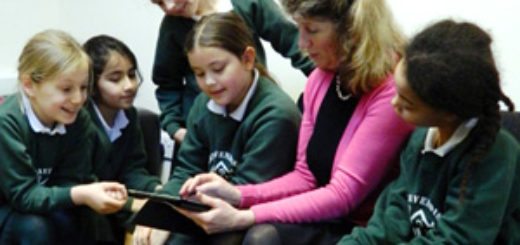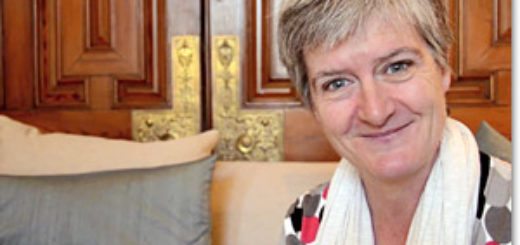An exclusive interview with Mr Chris Godwin, Headmaster of the Hall School, Hampstead
THE CHANGING FACE OF THE HALL SCHOOL
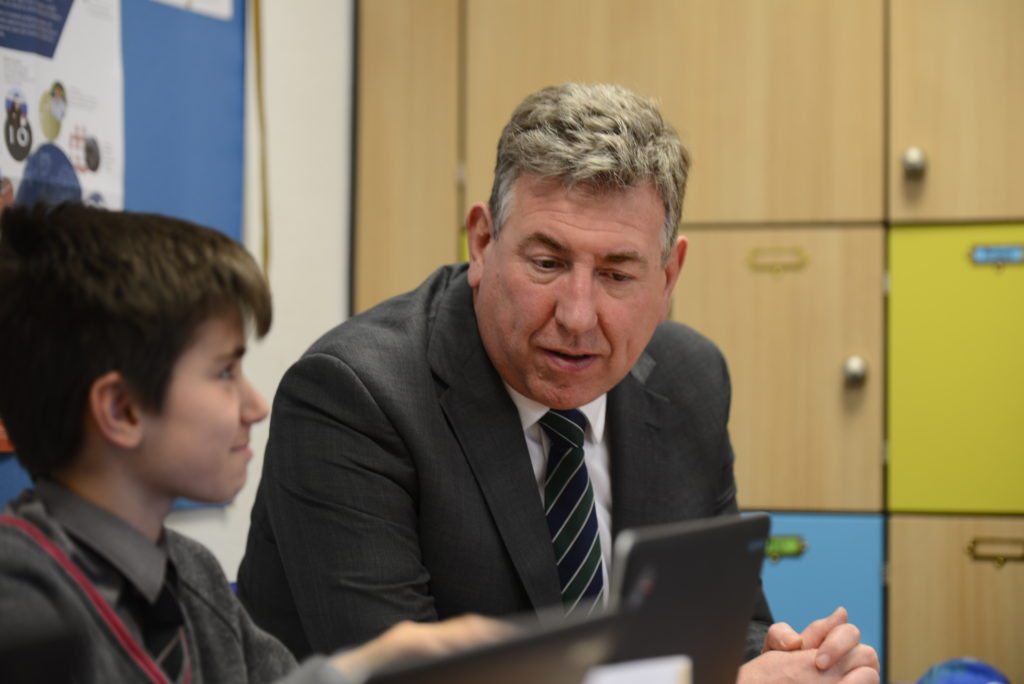
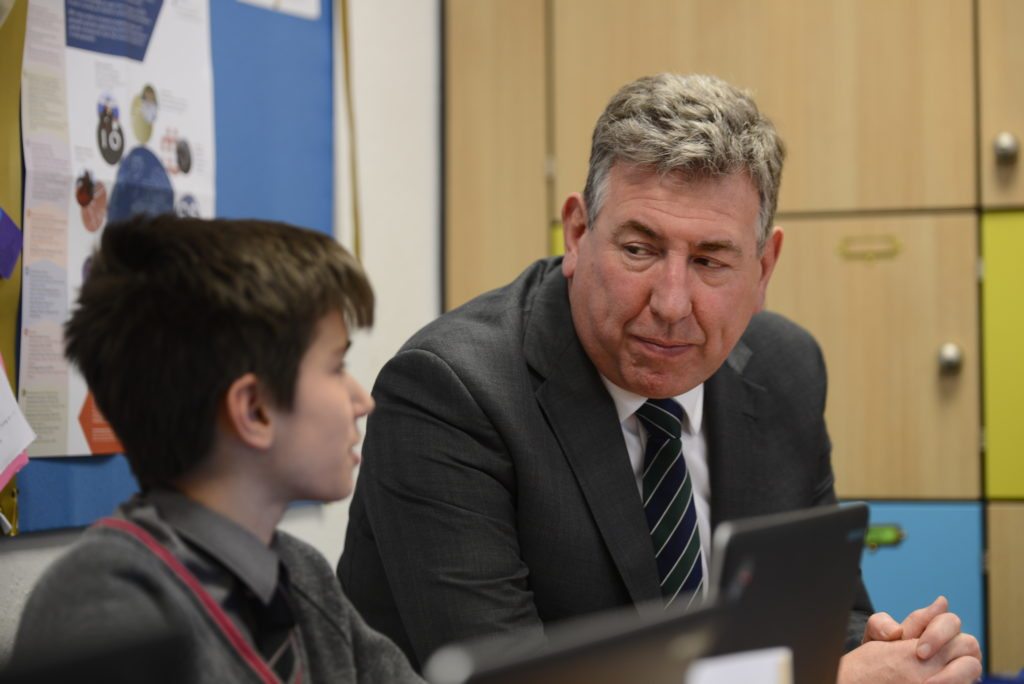
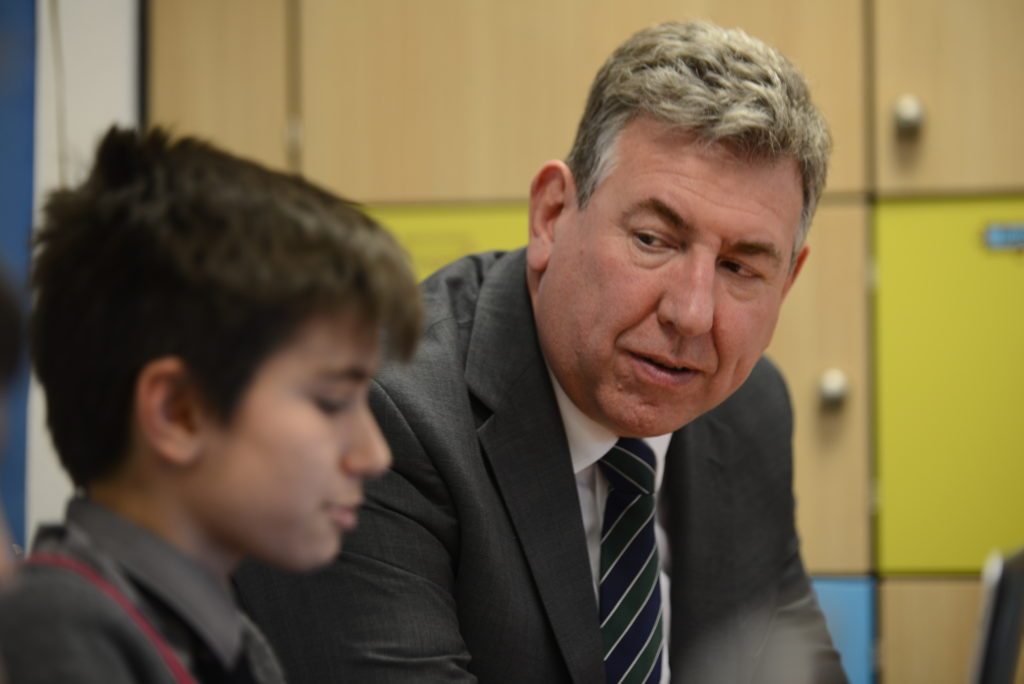
Mums In The Wood is very grateful to Mr Chris Godwin, headmaster of The Hall School and Dr Sue Godwin, Head of External Relations, for granting me an exclusive interview and speaking to me at length about the ethos of the school, their views of the assessment process, what they look for in a child and their plans for the future on 10th July 2015.
I asked them a few of the questions I felt would most reflect what prospective parents would want to know. The article below answers the questions and also gives prospective parents an overview of what the school stands for.
Question:
What is your ideal for the school, going forward and how does it differ from Mr Lough’s (if it does) ?
Answer:
Something that Mr Lough strived to achieve and something that we continue to strive towards is to let prospective parents know that despite popular belief, the Hall is not an academic hothouse. While academics remain important, the students are exposed to a wide range of activities and spend their free time doing whatever interests them. This could range from pottering around the art room, trying their hand at various projects to playing with clay and firing their own creations in the kilns available. The music department is very strong and most boys play an instrument. Not simply to pass grades, in a competitive way but in a way that inspires them, for pleasure. There are a lot of activities and clubs on offer and the staff are keen to help the boys find out for themselves what makes them tick. This is an approach encouraged throughout the school because we want to make sure that the boys are self motivated and enjoy their time at school.
I am very committed to the school and developing the standards of certain areas of the curriculum. I teach in the school (geography and current affairs) and I am passionate about developing the IT side within the school and making sure that it is kept moving forward. Both IT and sport are very important to me. We are not making dramatic changes but we want to make sure that the boys’ education is kept moving forward and structured in a way that is responsive to the world we are living in. We have to understand that the content of what the boys need to know is changing. We are focused on figuring out how to address these changing needs and providing access to learning and using these new methods and systems and exposing the boys in the most beneficial way to new areas of learning. We are striving towards creating life long learners and helping boys satisfy their curiosity through current media.
We have excellent exit statistics. We want to maintain those statistics but also make their learning journey an even more positive experience.
Parents feel that we have a very strong open door policy and are very happy that I have carried on this tradition. Parents are pleased that I am always accessible and my diary is always full with parent appointments.
We have also had an influx of European parents. Many from France and Germany. The majority of these parents feel that the approach to learning in schools in London would benefit from changing towards an approach akin to that of their own countries where childhood lasts longer and there is more of an emphasis on play based learning. We as a school agree with that and believe that children learn so much through play-based and problem-solving approaches to learning.
We are very focused on the child.
Question:
The Hall is generally considered to be a school with exceptionally high academic standards. However, there is also a commonly held perception that the boys are pushed very hard and that children who need a little more nurturing and hand holding might struggle. Do you think this perception is justified and what would you say to parents who have these concerns?
Answer:
I am very keen to show parents that we have a child centred focus in the school.
There is a subtle difference between pushing and aspiring. We are a very high performing school but this is not through constant driving.
Because our boys do very well and are very bright boys, they do very well. We recently won a national award for chess and a national award for history. This creates an illusion that our boys are being pushed because academic achievements are high but this is not the case.
Further to my answer to the previous question, we do as a school place a strong emphasis on learning, teaching and developing our students. However, we do also have an equally strong emphasis on pastoral care. As a school we want to develop the best possible learners so boys’ emotional and social well-being underpins everything ; we want to set the boys up to face their futures with confidence.
We have a broad curriculum that supports this. There is a real breadth of activities in the school for all types of boys to enjoy. This is completely contrary to the idea that all we do as a school is to drive our boys in academic pursuits only.
We have an excellent Learning Support department consisting of 5 members of staff and a counsellor. This group is augmented by a speech therapist and an occupational therapist.
If boys have certain needs and a large proportion of them do, we take them out in small groups or individually, or provide in-class support to help them further. This usually doesn’t cause much of a problem as there is constant movement within the classes with boys going off for music lessons etc. We are committed to identifying learning difficulties and helping the boys overcome these. We often find that with the support the boys receive, their self esteem also improves.
It is very rare that a child is asked to leave. In my tenure here, no child has been asked to leave by the school before their time. We have 54 boys in Year 1 and those boys usually go all the way through to Year 8. This is what the school encourages. Usually if a boy leaves early, it is because their parents have to relocate and not because the school has asked them to leave.
Our practice is to maintain very frequent contact with parents and if a child is struggling, we would have ongoing discussions with the parents as to the approach to take in the interests of the boy. We believe that it is our duty and responsibility to support the whole family throughout their partnership with the school, right from the junior school through middle school to the senior school. We have often found that sometimes all that is needed is a short sharp burst of support to help them come out of their shell/develop confidence, self esteem etc. or more specifically, with math, reading and writing skills.
We don’t conduct reviews of boys every year in relation to whether they can ‘stay on’ with us and there certainly are no systematic reviews when they enter the middle school. If a child leaves, it is mostly because there have been long term discussions with parents and parents feel that their son is unhappy or they are unsure about how he is developing and therefore think he might thrive better in a different environment. We would like to emphasise that this only comes about after a long term discussions, so that it is never a sudden shock to a parent. We discuss the situation with parents over a very long period.
We do our best to understand and cater to all types of children and personally, I would be very sad if a certain type of child didn’t or couldn’t flourish within the school. We do our best to understand the children who come to us and to accommodate all different temperaments and dispositions – there are lots of types of children.
The feedback we receive suggests that Parents and boys are very happy with the school and how we support our boys. The school strives to maintain transparency at all levels and parents are fully aware of our support policies. Any concerns raised are addressed and parents do feel that their concerns do matter.
I am absolutely committed to making sure that all our boys are well looked after. We have a review of the pastoral care policies every 3 years. During the review, we look at the opportunities the children have, how we support them etc and the results are fed into the curriculum.
We have a lot of parent focus groups which are also a big influence on school life. All elements that arise from these different groups are also fed into the review and help us make a decision about how to move forward.
Question:
Given the fierce competition for places at the Hall, what advice would the school give to parents who have opted to tutor their children in the hope that this will give them the edge that will gain them a place at the Hall?
Answer:
We are very adept at recognising ‘tutoring’. We strongly urge parents not to tutor their children.
We are looking for natural ability in boys. Boys who display a certain amount of character. This is not something that a tutor can teach. We are not interested to know whether a boy can ‘recite the alphabet backwards’ for example – rather we want to observe the manner in which they interact with their peers and the manner in which they present themselves. We look for natural curiosity. Boys who ask lots of questions and display a good imagination.
Assessments are conducted in a manner that help us assess exactly what the boys are like. This is quite difficult given that the boys at 3.5 and 4.5 are very young but we use the British Psychological Society assessment tests. These tests have been used for over 50 years and are very helpful in assessing children according to their age. The tests have a grid system and we are able to enter the scores against the child’s age so that the results we get are standardised. This means for example, that summer borns are not disadvantaged in any way because their age is taken into consideration.
A child’s attitude and aptitude are important. They do not have to be overly physically adept, though we are generally interested in gross and fine motor development. We do not ask them to jump and hop at assessments. It is difficult to assess at such a young age but we do our best to see which children we feel would be happy and fit in well with the school.
Every year, our main intake into the school is into Reception and Year 1. We assess 6 boys at a time with 4 teachers, including me (Mr Godwin). This enables us to obtain a very good picture of the child.
It is a very open process and if a child is unwell on the day or there is some unforeseen problem that has cropped up, we are happy to move the dates to accommodate the child. We just want to see them ‘at their natural best’.
After the assessment, the process is also very transparent. We give detailed feedback to parents who call us if their son has not been offered a place. We also operate a waiting list because numbers we are being asked to assess every year are increasing and it is very sad but we cannot offer places to all the children.
We do not want parents to feel as though their child has failed in any way if they are not offered a place but unfortunately there are no plans to expand the school and places are limited. We have very selective criteria and the boys who fulfil that criteria will be offered a place. This is not a reflection by any means on those who are not offered a place.
We are also happy to guide parents through the assessment process. We often get asked whether a boy should sit the 4+ or 5+ assessment. There are no set rules but we offer guidelines – and it usually depends on the maturity of the child, including their prowess in English, since teaching of every part of the curriculum from the early years onwards is in English and we do not want any child to be disadvantaged from their earliest days. For this reason we sometimes advise that bi-lingual (or tri-lingual) children in particular sit the 5+ assessment – but there again, they may be the second or third child in the family and therefore at ease with ‘schools’ and totally ‘ready’ for Reception.
We encourage parents to call the school and are happy to help parents with their decisions. They are also welcome to visit the school during the application process.
Question:
Gaining entry to any of the top North London private schools is an achievement and not all children suit all schools. What are the basic academic/cognitive/social skills that the Hall thinks a child needs to have mastered, in order to make their application a viable one?
Answer:
We don’t look for anything outside of the normal development of a child. We do expect children to be able to hold a pencil and draw a basic shape for instance but we don’t discount a child if they are not able to do this. We are very aware that children develop at different paces.
Question:
The life styles and professions of North London parents vary widely. While some parents opt to stay home, some parents have very demanding jobs. What parental involvement and support do you expect across the board from parents with sons at the Hall?
Answer:
We have a very strong parent association. Parents choose as to how involved they want to be.
We have lots of events, lots of picnics and balls and we get overwhelming support from the parents. We find that parents are very willing to be fully involved and they are instrumental in helping organising events.
Both parents are generally working so as a school, we organise all our social events like for instance Evensong at St Paul’s, or a Ball at the Tower of London, at a time when parents are able to come. We also try to offer flexibility in timings for parent consultations / meetings and in-house events such as concerts, talks, lectures and so on at times in the day that most parents can manage.
There are lots of parents focus groups and parents also help with fostering community spirit with our reading programmes at community centres and partnership primary schools and so on.
The school has a fairly coherent group of parents who come from very mixed backgrounds like media, theatre, finance, legal and academia. In general, most families live in near proximity to The Hall.
Question:
How does the school tackle any complaints of bullying?
Answer:
We work through setting expectations out very clearly for boys’ behaviour in most areas of life. They are very aware of what is acceptable and what is not.
Younger boys know that if they are unhappy or an incident has occurred, they can always approach an adult (teacher) or an older boy about any issues.
Parents are encouraged to report any incidents to teachers so that matters can be dealt with quickly and efficiently.
We find that often it is around the age of 9 or 10 years that tension between boys begins to show through behaviours such as jostling and shoving and ‘position seeking’. So the school sets expectations out for boys in relation to their behaviour and all boys are encouraged to come to an adult if in difficulty in understanding these or finding others do not adhere to these expectations.
Question:
How does the school view boys who are already in the school being tutored for secondary school entrance examinations?
Answer:
The school encourages parents to believe in the learning and teaching going on here. We do ask that parents trust in their child’s ability and in the school’s ability to get the child up to the standard required to enter the top secondary schools.
Our parents have very strong values about their children’s education and naturally place a great deal of importance on the secondaries. The boys have a lot of external pressures which have an impact on whether or not tutoring is resorted to by the parents. But we have a very good relationship with the top secondaries like Westminster, St Paul’s, Eton etc.
We also encourage parents to have realistic expectations. Every child is an individual. They have very different characters and needs. The school does very strongly advise parents not to tutor their children but parents do make individual decisions.
The next stage is very competitive and the school understands the importance placed on the exams. In Year 6 the boys are required to sit the pre-assessments for many of the senior schools but we believe that the normal Common Entrance curriculum stands the boys in good stead and so we teach the way we believe works, without subjecting the boys to additional pressures for these pre-assessment tests. We are not hot housing the children. The preparation process is made up of lots of different elements. We have successfully maintained our track record with placements.
Interestingly, to our dismay, the children of the school seem to be the target of external, independent tutors. On the last day of school, two tutors were identified handing out fliers to the children outside the school gates!
Regardless, the school does stress that parents shouldn’t bow to external pressures but instead trust in the school to achieve the right entrance results that enable a particular child to go to the school that suits them. The standards of education are high and the school exits have maintained their numbers into the top London secondaries.
Question:
What does the school do to raise a social conscience in boys who are clearly from affluent backgrounds?
Answer:
The school encourages boys to participate in lots of community projects. We don’t want our boys to live in a bubble. Parents help out with improving the reading skills of more disadvantaged children at partnership primary schools and soon boys will be running chess clubs in community centres. This we find is mutually beneficial because the boys are doing what they love and at the same time, sharing their knowledge and helping another child who has not had the same access to learn and develop in certain areas.
The school also offers means-tested bursaries.
My Thoughts
I felt that the Headmaster was genuinely trying to showcase the school in a positive light and dispel preconceptions of hot housing and a pressurised academic environment. His commitment to the school is clear and he is determined that prospective parents are made aware of the ethos of the school and its teaching methods. It is clearly one of the best schools in the area and achieves excellent results but the conviction with which the Headmaster denied allegations of pushing boys out, hot housing and driving boys to the point of unhappiness with academic expectations, rang honest and true. The school seems to be changing positively under Mr Godwin’s hand and it is now a matter of spreading the word. I was extremely impressed with both Mr and Dr Godwin’s sincerity and honesty. The school clearly attracts large numbers of academically able and bright boys and their achievements should not be diminished by being put down to being a result of too much pushing.




